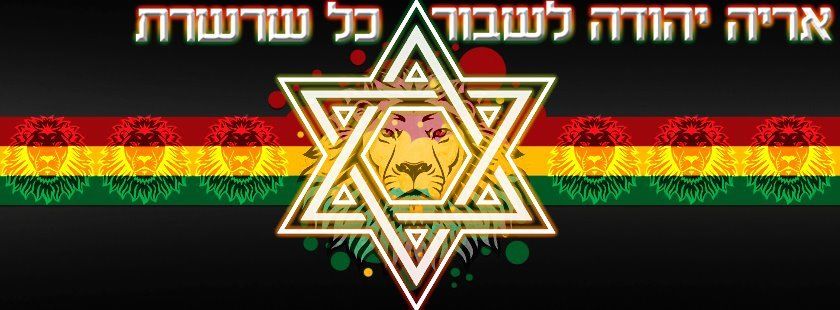All Rastas believe something different.
you mean different from each other? there's no central authority, then. would someone from the ethiopian royal family have this authority - and are there any of them left or were they all murdered in the coup?
Anyways, I would be interested to get your opinion on the scripture that pertains to the "blackness of Solomon, David, etc. They were outlined in the last article, I just want to know if he was correct??
umph. well, in the song of songs, the black person is definitely female. however, depending on how you interpret this, the person might be the queen of sheba but it is more reasonable to consider her either as the Shekhinah or Divine Presence, or the jewish people - the relationship between us and G!D is most accurately categorised as between bride and bridegroom, G!D Being the bridegroom, but both work equally well. now, the advantage of this is that the jewish people are then identified with the "black" woman - but then you end up with G!D being white, as the bridegroom, who is described later on as being "ruddy", with various body parts described as "alabaster" or "golden" i think. the main issue is this; "black" as described in the song of songs is not about ethnicity; the text says quite clearly that sunburn is responsible. now, in the context, sunburn is something that happens to people who are low-class, peasanty outdoors types. in other words, the "king" has a "desk job", whereas as the woman has spent time outside, she has been "burned by sin", as it were. in other words, she wasn't "black" to start with. lamentations 8:4 and the other quotes used are the same, blackness here is metaphorical, not ethnic - there's a clear suggestion of blame. nonetheless, there is no suggestion that i have so far seen in the text that black people are black *for this reason*, ie because of something they did wrong; even the punishment of noah's son ham, from whom the egyptians, cushites and other africans are descended, is not connected to anything to do with ethnicity.
the other interesting episode that you might look at is the punishment of miriam for racism - she criticises moses for marrying a "cushite" (although zipporah was actually a midianite) - but, interestingly, the etymology of "QUShi" connects it to beauty. thus we can conclude that zipporah was dark, but that this was considered attractive! at any rate, she gets punished by
tazria, which is usually mistranslated as "leprosy", but is considered to be a complete loss of pigmentation, or covering the skin with "pure, snowy whiteness" - poetic justice, one might suggest, showing her that too much "whiteness" was perhaps not as great as she seemed to think!
obviously there's a lot of short-circuit thinking that goes along with the symbology of white-good, black=bad, but to be quite honest, "white" people aren't white - they're pink. and "black" people are pretty much brown as far as i can tell. personally, i'm browny-green (or olive, if you like) as you might expect and i think the whole thing is nonsense. likewise, the description of david does not suggest he was anything but "ruddy", whatever that means - possibly with sunburn - he was a shepherd after all!
i personally think there's a lot more potential in the identification of rastafarians as akin the jewish people if you look at amos 9:7 - "'Are you not like the children of the Ethiopians to me, O children of Israel?' says HaSHEM." in fact, if you go and take a look at mentions of ethiopians in the bible, there's a lot more interesting stuff there than in mentions of "black" or "scorched" people.
b'shalom
bananabrain

